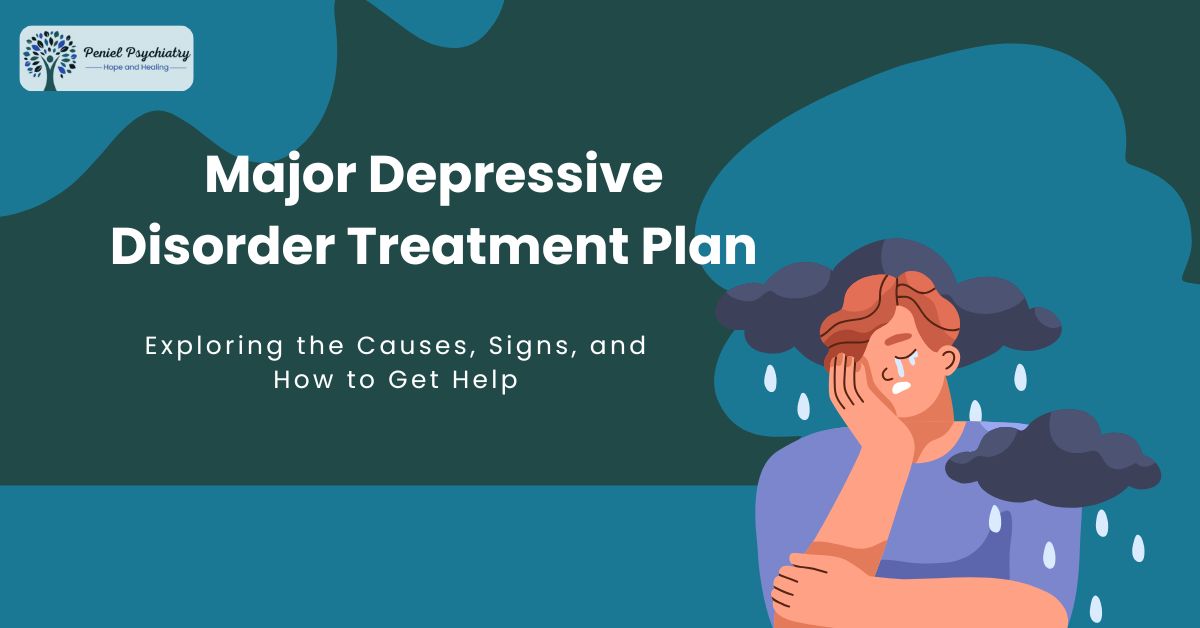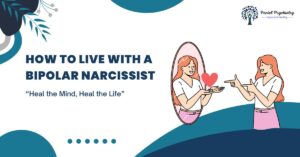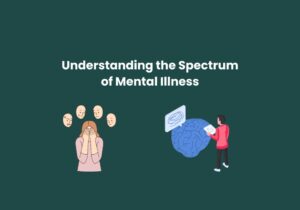A major depressive disorder treatment plan gives people a straightforward way to start feeling better. Major depressive disorder, or MDD, can cause profound sadness, low energy, poor sleep, and trouble focusing. It can make daily life feel hard and lonely.
The right plan helps people find hope again. It often includes therapy, medication, and healthy daily habits. Each person’s experience with depression is different, so every plan must fit their needs.
A trusted mental health provider can guide this process with care and support. With steady treatment and patience, many people recover and begin to enjoy life again. Healing takes time, but the right help can make a real difference.
Understanding Major Depressive Disorder (MDD)
Major Depressive Disorder, or MDD, is more than feeling sad for a few days. It is a serious mental health condition that affects mood, energy, and daily functioning. People with MDD often find it hard to enjoy things they once liked.
Sleep, appetite, focus, and motivation can all change. Understanding MDD is the first step toward building a strong major depressive disorder treatment plan. Knowing what causes symptoms and how they appear helps guide personalized depression care that fits each person.
What Is Major Depressive Disorder?
Major Depressive Disorder is a condition that lasts at least two weeks and affects daily life. It can cause persistent sadness, low energy, loss of interest, and feelings of hopelessness. Physical symptoms like headaches, changes in appetite, or trouble sleeping may also appear.
Each person experiences depression differently. Some may have more emotional symptoms, while others notice physical changes first. This variability is why a personalized depression treatment plan is essential.
Common Symptoms of Major Depressive Disorder
Some common signs of MDD include:
- Feeling sad or empty most of the day
- Losing interest in hobbies and activities
- Feeling tired or low on energy
- Trouble sleeping or sleeping too much
- Changes in appetite or weight
- Difficulty concentrating or making decisions
- Feeling worthless or guilty
These symptoms may interfere with work, school, or relationships. Noticing them early is key. Psychiatric treatment for depression can help manage symptoms and prevent them from worsening.
Causes of Major Depressive Disorder
Major Depressive Disorder often arises from a mix of factors:
- Biological: Changes in brain chemistry or genetics
- Psychological: Stress, trauma, or past experiences
- Social: Isolation, relationship problems, or significant life changes
Understanding these factors helps doctors create a plan that suits each individual. Combining therapy, medication, and lifestyle changes is often the most effective treatment for MDD.
Why a Personalized Treatment Plan Matters
Not all depression looks the same. What works for one person may not work for another. That’s why a personalized depression care plan is essential. It addresses the unique symptoms, history, and needs of each person. Without a tailored plan, treatment may be less effective or take longer to show results.

Individual Needs Are Different
Everyone experiences MDD differently. Some people may experience more emotional symptoms, such as sadness or hopelessness. Others might notice physical symptoms first, such as fatigue or changes in appetite. Age, lifestyle, and medical history also affect how depression shows up. A personalized plan considers all these factors to give the best results.
Combination of Treatments
A tailored plan often combines several approaches. Depression therapy, like CBT or interpersonal therapy, can help change unhelpful thought patterns. Medication may be used to adjust brain chemistry. Lifestyle adjustments, such as improving sleep, exercise, and nutrition, support overall well-being.
Better Outcomes
Research shows that people respond better when treatment is specific to their needs. A personalized approach helps reduce symptoms more quickly, improve daily functioning, and support long-term recovery. With the proper guidance from a mental health professional, MDD treatment becomes more focused and effective.
Key Components of a Major Depressive Disorder Treatment Plan
A successful major depressive disorder treatment plan combines different approaches to help each person recover. Depression affects people in many ways, so treatment often includes more than one type of care. A tailored plan focuses on emotional, physical, and social aspects. It ensures that therapy, medication, and lifestyle changes work together. With the proper guidance, people can manage symptoms, regain energy, and return to daily life.
Comprehensive Assessment
Before starting any treatment, a thorough assessment is essential. Mental health professionals review medical history, current symptoms, and lifestyle factors. They may use questionnaires and diagnostic tools to understand the severity of depression. This assessment helps create personalized depression care that fits the individual. Knowing the whole picture allows doctors to recommend the most effective psychiatric treatment for depression.
Medication Management
Medication is often part of an MDD treatment plan. Standard options include antidepressants like SSRIs and SNRIs. These medications can help balance brain chemicals linked to mood. Doctors monitor responses and adjust doses as needed. While medication helps manage symptoms, it works best when combined with therapy and lifestyle support.
Depression Therapy
Therapy is a key component of MDD treatment. Cognitive-behavioral therapy (CBT) helps people recognize and change unhelpful thought patterns. Interpersonal therapy (IPT) focuses on improving relationships and communication. Other therapies support coping skills, stress management, and emotional understanding. Regular sessions help build lasting tools for managing depression.
Lifestyle and Daily Habits
Healthy habits support recovery. Regular exercise, balanced nutrition, and consistent sleep improve energy and mood. Mindfulness, relaxation techniques, and social support also strengthen mental health. Lifestyle changes are not a substitute for therapy or medication, but enhance their effectiveness.
Monitoring and Follow-Up
Regular check-ins are essential to track progress. Symptoms may change over time, and treatment may need to be adjusted. Continuous support ensures the plan stays effective. With careful monitoring, personalized depression care becomes flexible, responsive, and more successful.
Emerging and Advanced Treatments for MDD
Some people with major depressive disorder may not fully respond to standard treatments. In these cases, emerging and advanced treatments can help. These approaches are part of modern MDD treatment and offer new ways to manage symptoms effectively.
Transcranial Magnetic Stimulation (TMS)
TMS uses magnetic pulses to stimulate parts of the brain linked to mood. It is non-invasive and usually done in short sessions over several weeks. TMS can help those who have not responded well to medication. Many patients report improvements in energy, focus, and overall mood.
Ketamine Therapy
Ketamine therapy, including low-dose infusions, can provide fast relief for severe depression. Unlike traditional medications, ketamine works quickly, often within hours or days. It is administered under medical supervision and is usually combined with ongoing depression therapy for the best results.
Esketamine (Spravato)
Esketamine is a nasal spray version of ketamine approved for treatment-resistant depression. It is used along with oral antidepressants and monitored by healthcare providers. Like ketamine, it offers faster symptom relief for those struggling with persistent depression.
Why Advanced Treatments Matter
These options are not for everyone, but can be life-changing for some. Combining advanced treatments with therapy, medication, and lifestyle support forms a comprehensive psychiatric treatment for depression. They expand recovery options, offering hope to people who may have felt stuck with traditional approaches.
When to Seek Professional Help
Knowing when to seek help is an integral part of managing major depressive disorder. At the same time, some low moods are regular, persistent, or worsening symptoms that may require professional care. A major depressive disorder treatment plan guided by a trained mental health provider can help prevent symptoms from becoming more serious and improve daily functioning.
Warning Signs to Watch For
Sure signs indicate that it is time to reach out for professional help:
- Persistent sadness or hopelessness for most of the day
- Loss of interest in hobbies or activities once enjoyed
Severe fatigue or trouble functioning at work or school - Changes in sleep or appetite that affect daily life
- Thoughts of self-harm or suicide
Importance of Early Intervention
Early intervention improves the effectiveness of MDD treatment. Starting depression therapy and medication sooner can reduce symptom severity. Professionals can also design personalized depression care to address unique needs.
Seeking the Right Support
If these signs appear, contact a licensed psychiatrist, psychologist, or therapist. Psychiatric treatment for depression may include therapy, medication, lifestyle guidance, or a combination. Timely professional support can help stabilize mood, restore daily function, and guide long-term recovery.
How Peniel Psychiatry Can Help
At Peniel Psychiatry, we focus on providing personalized depression care for each patient. Major depressive disorder affects people in different ways. That’s why every major depressive disorder treatment plan we create is unique. We combine therapy, medication, and lifestyle guidance to help patients regain control of their lives.

Comprehensive Assessment
We start with a thorough evaluation of symptoms, medical history, and lifestyle. This helps us design an MDD treatment plan tailored to the individual. Understanding the patient fully enables our team to provide effective, supportive care.
Therapy and Medication
Our clinic offers evidence-based depression therapy such as cognitive-behavioral therapy (CBT) and interpersonal therapy (IPT). When needed, we also provide carefully monitored medication. Combining therapy and medication often produces the best results.
Ongoing Support and Follow-Up
Recovery is a process. Peniel Psychiatry provides continuous monitoring to track progress and adjust treatment as needed. Regular follow-ups ensure that the psychiatric treatment for depression remains effective and responsive to changes in the patient’s condition.
A Caring Approach
Our team believes in treating patients with empathy and respect. We aim to create a safe environment where patients feel heard and supported. With the proper care, many patients experience reduced symptoms, improved daily functioning, and lasting recovery.
If you or a loved one is struggling with depression, book your appointment today or contact us to learn more about how we can help guide you toward a path of healing and hope.
Conclusion
A major depressive disorder treatment plan helps manage MDD in a way that fits each person’s needs. Combining depression therapy, medication, lifestyle adjustments, and professional support can reduce symptoms and improve daily life. Every person’s experience with depression is different, so personalized depression care ensures treatment is effective and supportive, helping individuals gradually regain balance and well-being.
FAQs: Major Depressive Disorder Treatment Plan
What is a major depressive disorder treatment plan?
A major depressive disorder treatment plan is a structured approach to help manage depression. It usually includes therapy, medication, lifestyle changes, and ongoing support. Each plan is tailored to a person’s unique symptoms and needs, making treatment more effective.
How long does MDD treatment take to show results?
The timeline varies by individual. Some people feel improvement within a few weeks of therapy or medication, while others may need several months. Personalized depression care helps adjust the plan for faster and more effective results.
What types of therapy are used in MDD treatment?
Standard therapies include cognitive-behavioral therapy (CBT) and interpersonal therapy (IPT). These approaches help people recognize negative thought patterns, improve coping skills, and manage emotions effectively.
Can medication alone treat major depressive disorder?
Medication can reduce symptoms, but combining it with depression therapy and lifestyle support usually produces the best outcomes. Psychiatric treatment for depression is most effective when it addresses both emotional and physical aspects of the condition.
Are advanced treatments like TMS or ketamine safe?
Yes, under professional supervision. Treatments such as Transcranial Magnetic Stimulation (TMS) and ketamine therapy are used when standard approaches are insufficient. They are monitored closely to ensure safety and effectiveness.
How do I know if I need professional help?
Seek help if depression symptoms persist for more than two weeks or interfere with daily life. Warning signs include persistent sadness, loss of interest, changes in sleep or appetite, and thoughts of self-harm. Early intervention improves outcomes in MDD treatment.




